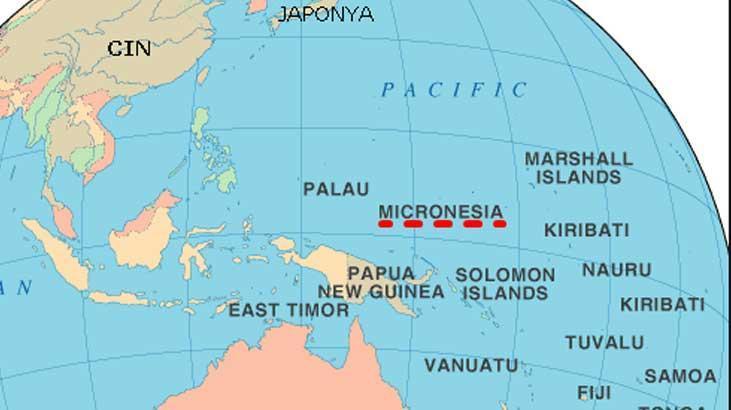The Kashmir Issue: Analyzing The Causes And Consequences Of India-Pakistan Tensions

Table of Contents
The Kashmir Issue remains one of the most volatile and enduring conflicts in South Asia, casting a long shadow over India-Pakistan relations and impacting regional stability. Understanding its complexities requires examining its historical roots, the competing claims, and the devastating consequences of this ongoing dispute. This article delves into the core causes and ramifications of this deeply entrenched conflict.
<h2>Historical Roots of the Kashmir Conflict</h2>
<h3>The Partition of India and the Accession of Kashmir</h3>
The hasty partition of India in 1947, dividing the British Indian Empire into India and Pakistan, left the princely state of Jammu and Kashmir with a precarious future. Its Maharaja, Hari Singh, initially hesitated to accede to either dominion, hoping to maintain independence. However, following tribal raids supported by Pakistan in October 1947, he was forced to seek assistance from India. This led to the Instrument of Accession, officially joining Jammu and Kashmir to India.
- The role of tribal raids: Pakistan-backed Pashtun tribesmen launched attacks into Kashmir, aiming to forcibly annex the territory.
- India's military intervention: India intervened militarily to repel the invaders and protect the state.
- The UN's involvement: The United Nations Security Council passed resolutions calling for a plebiscite to determine the will of the Kashmiri people, a process that has never been implemented.
- The establishment of the Line of Control (LOC): A ceasefire line, known as the Line of Control (LOC), was established in 1949, dividing Kashmir between India and Pakistan. This line remains a contentious boundary to this day.
Keyword Optimization: Partition of India, Maharaja Hari Singh, Line of Control, UN Resolution, Kashmiri independence movement, Instrument of Accession.
<h3>The Instrument of Accession and its Legal Validity</h3>
The Instrument of Accession remains a central point of contention. Pakistan argues that the accession was illegitimate due to the Maharaja's lack of popular mandate and the circumstances surrounding its signing. They maintain that the Kashmiri people's right to self-determination was violated.
- Pakistani arguments for self-determination: Pakistan emphasizes the Muslim majority population of Kashmir and their right to choose their own destiny.
- Indian counter-arguments emphasizing legal validity: India counters that the accession was legal under the Indian Independence Act and that the Maharaja, as the ruler, had the authority to sign the document.
- The ongoing debate on the legitimacy of the accession: The legal validity of the Instrument of Accession continues to fuel the conflict, with both sides presenting their arguments based on different interpretations of international law and historical events.
Keyword Optimization: Instrument of Accession, self-determination, legal validity, Kashmiri plebiscite.
<h2>Competing Claims and Narratives</h2>
<h3>India's Perspective</h3>
India views Jammu and Kashmir as an integral part of its territory, emphasizing its legal claims based on the Instrument of Accession and its constitutional integration.
- Integration as a constituent state: Jammu and Kashmir was integrated into the Indian Union as a constituent state, enjoying special autonomous status under Article 370 of the Indian Constitution. This article was revoked in 2019.
- J&K's special status (Article 370, now revoked): Article 370 granted special autonomous status to Jammu and Kashmir until its revocation in 2019, a move that further inflamed tensions.
- India's concerns regarding terrorism and cross-border infiltration: India accuses Pakistan of supporting cross-border terrorism and infiltration into Kashmir, a claim consistently denied by Pakistan.
Keyword Optimization: Article 370, constitutional integration, terrorism in Kashmir, cross-border infiltration.
<h3>Pakistan's Perspective</h3>
Pakistan's claim to Kashmir is based primarily on the principle of self-determination for the Kashmiri people, citing the region's predominantly Muslim population.
- The right to self-determination for Kashmiris: Pakistan argues that Kashmiris have the fundamental right to choose their own future through a free and fair plebiscite.
- Support for Kashmiri separatist groups: Pakistan has historically provided support to various Kashmiri separatist groups, though the extent and nature of this support remain a matter of ongoing debate.
- Pakistan's accusations of human rights violations: Pakistan alleges widespread human rights violations by Indian forces in Kashmir, which India denies.
Keyword Optimization: self-determination, Kashmiri separatists, human rights violations, Pakistan's support for militants.
<h2>Consequences of the Kashmir Issue</h2>
<h3>Regional Instability and the Nuclear Dimension</h3>
The Kashmir Issue has created a volatile situation, posing a significant threat to regional peace and security, especially given the nuclear arsenals of both India and Pakistan.
- Military standoffs: Regular military standoffs and border skirmishes occur along the LOC, increasing the risk of escalation.
- Border skirmishes: Frequent skirmishes and cross-border firing incidents along the Line of Control cause considerable damage and loss of life.
- The risk of accidental or intentional escalation: The potential for accidental or intentional escalation to full-scale conflict, including the use of nuclear weapons, remains a significant concern for the international community.
- Impact on regional peace and stability: The ongoing conflict undermines regional peace and stability, hindering economic development and cooperation.
Keyword Optimization: nuclear weapons, regional instability, military escalation, South Asian security.
<h3>Human Cost of the Conflict</h3>
The conflict has exacted a heavy human toll, with decades of violence resulting in immense suffering for the Kashmiri people.
- Casualties from violence: Thousands of civilians and security personnel have lost their lives due to the conflict.
- Displacement and refugee crises: The conflict has caused mass displacement and created refugee crises, leading to immense hardship for affected communities.
- Human rights abuses: Allegations of human rights abuses by both sides have further compounded the suffering of the Kashmiri people.
- The impact on economic development: The protracted conflict has severely hampered economic development and hindered the region’s overall progress.
Keyword Optimization: humanitarian crisis, human rights abuses, civilian casualties, refugees.
<h2>Conclusion</h2>
The Kashmir Issue remains a deeply complex and multifaceted problem, with historical roots intertwined with competing narratives and claims. The consequences are far-reaching, impacting regional stability, international relations, and most significantly, the lives of the Kashmiri people. Understanding the historical context, the competing perspectives, and the devastating human cost is crucial for fostering any meaningful dialogue towards a peaceful resolution. Further research and informed discussion on the Kashmir Issue are vital for promoting peace and understanding in the region. Only through sustained efforts and a commitment to diplomacy can we hope to find a lasting solution to this enduring conflict. Finding a peaceful resolution to the Kashmir Issue requires a commitment from all parties to dialogue, compromise, and respect for the rights and aspirations of the Kashmiri people.

Featured Posts
-
 Greenland Under Increased Us Surveillance An Exclusive Intelligence Update
May 08, 2025
Greenland Under Increased Us Surveillance An Exclusive Intelligence Update
May 08, 2025 -
 Saturday Night Live A Turning Point For Counting Crows
May 08, 2025
Saturday Night Live A Turning Point For Counting Crows
May 08, 2025 -
 Kripto Para Duesuesue Yatirimcilarin Satis Kararlarini Etkileyen Faktoerler
May 08, 2025
Kripto Para Duesuesue Yatirimcilarin Satis Kararlarini Etkileyen Faktoerler
May 08, 2025 -
 Bitcoin Maas Oedemeleri Brezilya Da Yasal Detayli Bilgiler Ve Analiz
May 08, 2025
Bitcoin Maas Oedemeleri Brezilya Da Yasal Detayli Bilgiler Ve Analiz
May 08, 2025 -
 Yavin 4s Return A Star Wars Retrospective
May 08, 2025
Yavin 4s Return A Star Wars Retrospective
May 08, 2025
